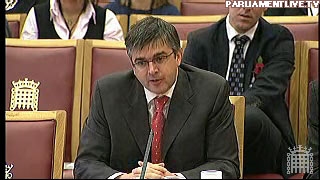I blogged previously about the House of Lords Information Committee’s inquiry into ‘People and Parliament‘: their final report came out this week, and couldn’t really have been more in favour of the ‘free our bills‘ agenda. Among its recommendations, as listed in the press release:
- information and documentation related to the core work of the House of Lords should be produced and made available online in an open standardised electronic format (not pdf) that enables people outside Parliament to analyse and re-use the data
- the integration of information on Parliament’s website, eg biographical info on Members to be linked to their voting record, their register of interests, questions tabled, etc
- Bills should be presented on Parliament’s website in a way that makes the legislative process more transparent and easier to understand
- an online system enabling people to sign up to receive electronic alerts and updates about particular Bills
- a requirement on the Government to start producing Bills in an electronic format which both complies with ‘open standards’ and is readily reusable
- an online database to increase awareness of Members’ areas of expertise
- an online debate to run in parallel with a debate in the Lords Chamber
- greater access to Parliament for factual filming
- a trial period during which voting in the Lords is filmed from within the voting lobbies
- all public meetings of Lords committees to be webcast with video and audio
- a review of the parliamentary language used in the House of Lords to make it easier for people outside the House to understand
But there’s a lot more good stuff in it than just that (!). I note in particular the recommendation to take the Lords Of The Blog website further – incidentally, its recent facelift is a dramatic improvement (and I’ll be mentioning it in my WordCamp talk at the weekend); and the explicit commitment to allow people to embed video clips on their own websites, in a direct challenge to the existing (YouTube-centric) ban. (In fact, in their list of ‘action already taken’, they say ‘We have approved members uploading their contributions to the House’s proceedings onto YouTube.’ – so maybe the ban’s gone already, at least on the Lords’ side?
Never let it be said that politicians as a whole don’t get it.
